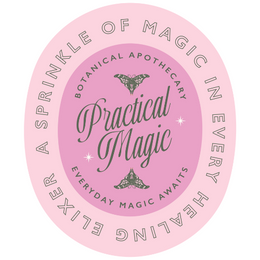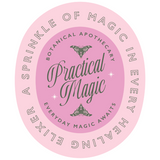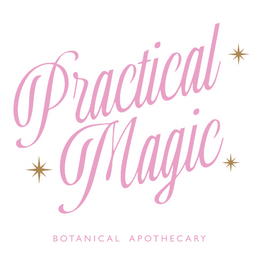Ginger - Herb of the Week
Latin name: Zingiber officinale.
belongs to the Zingiberaceae family and is native to Southeastern Asia
Ginger is a perennial, tropical plant with brilliant reddish-pink flowers.
Contrary to popular belief, the part of the ginger plant that we use isn’t actually a root. It’s technically a rhizome, which is a part of the stem that lives underground that provides both roots and stem with nutrients.
Most notable phenolic compounds present in the rhizome are: Gingerol, Shogaol and Paradol
Top researched-backed ginger benefits:
May lower blood sugar - In multiple clinical trials involving individuals with type II diabetes, the administration of ginger extract showed promising effects on the body’s ability to metabolize glucose and reduce long-term blood sugar levels.
May lower cholesterol - Clinical trials found that 1.2g of dried ginger every day for 90 days effectively decreased blood glucose and cholesterol levels. In addition to “bad” cholesterol levels (LDL) being lowered, ginger was also able to increase levels of “good” cholesterol levels (HDL).
Helps manage mild complaints of the gut or stomach and is also supportive for nausea.
May reduce inflammation- In one study observing participants with osteoarthritis, powdered ginger capsules were able to decrease the amount of pro-inflammatory proteins after 3 months of therapy. The researchers attribute this effect to the gingerol and shogaol present in ginger.
Beneficial for Asthma - In an animal study, ginger extract and one of its active constituents, shogaol, inhibited lung inflammation in mice with asthma. Ginger also had the ability to relax the smooth muscle of the airway, causing fewer spasmodic contractions.
Pain relief - In a trial with participants who had gonarthritis (inflammation of the knee joints), ginger extract was able to provide pain relief after 6 months of administration. Using the VAS (visual analog scale), subjects reported less pain when moving and when still.
May help with allergies - A clinical trial compared the effects of 500mg of ginger extract vs. loratadine (i.e. Claritin®), a popular antihistamine drug. The results showed that both the ginger extract and loratadine groups significantly decreased allergies, although there was no significant difference between the two groups. The researchers noted that ginger caused fewer side effects, especially drowsiness, fatigue, dizziness, and constipation.
Cold and flu symptoms - An animal study found that ginger helped to reduce the severity of sneezing and nasal rubbing and suppressed infiltration of mast cells in nasal mucosa and secretion of OVA-specific IgE in serum. Additionally, 6-Gingerol, a phytochemical in ginger was shown to inhibit the expression of not only Th2 cytokines but also Th1 cytokines in OVA-sensitized spleen cells.
Weight Loss - a study observing weight loss, researchers found that powdered ginger encouraged weight loss in 8 obese women. This effect is thought to be due to ginger’s ability to help with blood sugar stabilization.
NOTE: Always consult a healthcare professional if taking any sort of anticoagulant medication, prior to ingesting a ginger formula. Large doses (12g – 14g) of ginger have been known to enhance the effects of this medication due to its ability to inhibit the enzyme that causes blood clotting.
Dosing:
Standard dosing for ginger is as follows:
Tea: Pour 1 cup of boiling water over 1 tsp of the fresh root or 1/2 tsp dried, steep for 5 mins.
Tincture (1:5): 1.5 – 5ml, 3x/day
Dietary Supplement: 300 – 500mg/day of ginger extract
Fluid Extract (1:1): 0.25 – 1ml, 3x/day
Herbalist Tip:
Make ginger "ice" cubes to last throughout cold and flu season. They will be handy when you are sick and do not feel up to making anything. Peel several pieces of large ginger, give them a rough chop and add to your blender, add the smallest amount of water necessary to blend, pour mixture into ice cube trays and freeze. They will store for months in the freezer. When someone in the house is sick, simply pop one into a mug of boiling water and don't forget to add honey!
Magical Properties:
Use as a catalyst to make things happen faster
Use to attract prosperity and abundance
Use to attract energy
Linked to Fire Signs - use for Sun related spells
How to use: Add to tea blends, use in all potions to make them happen quickly (if desired), add to cauldron or use in candle magic.




